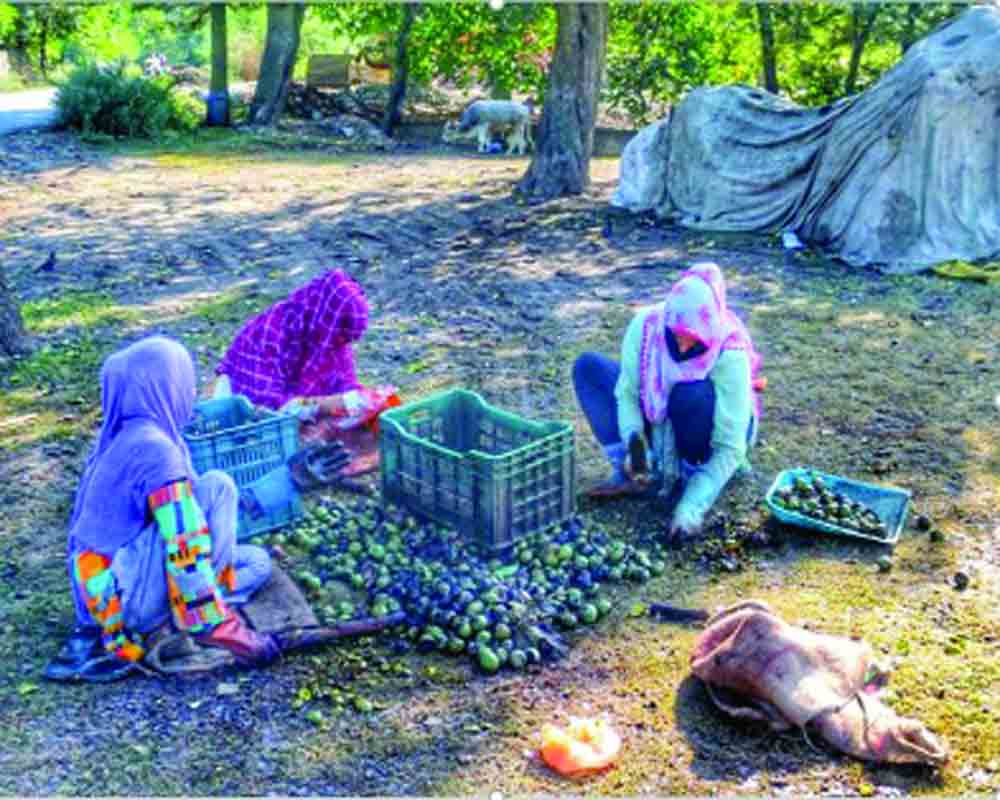Mangnad is not merely a supplier of milk and vegetables; it's a testament to how a community can carve its niche, even in challenging landscapes
In India's diverse landscapes, every village contributes a distinctive thread to the larger narrative of our country. Nestled approximately 6 km from the Poonch district in the Union Territory of Jammu and Kashmir, Mangnad stands out as a border village that is slowly etching its identity in the realms of agriculture and animal husbandry.
Over the years, Mangnad has earned a reputation for its unique approach to animal husbandry. It's a village where livestock is not just a part of the scenery; it's a way of life. Yet, it's not a place where dependence solely rests on animal husbandry. Even government employees here take a keen interest in both animal husbandry and agriculture. Consequently, Mangnad not only meets the local demand but also supplies milk and vegetables to the broader Poonch region. Every morning, vehicles laden with litres of milk make their way to the city, with city-dwellers acknowledging the village as a vital source for their daily dairy needs. This tradition has been sustained for years, but in the last 8-10 years, Mangnad has also emerged as a significant player in vegetable production, adding another layer to its unique identity.
Today, the village engages in diverse occupations, from private businesses to government employment, but one common thread binds them all—cultivating vegetables. Observing the burgeoning interest in agriculture, the local agriculture department has stepped in to support the villagers.
This collective effort has equipped the village with essential resources, including small tractors, quality seeds, agricultural camps, and water tanks, transforming Mangnad into a beacon of self-sufficiency. Considering the hilly terrain of Jammu and Kashmir, this transformation is a testament to the resilience and determination of its people.
Mangnad is not merely a supplier of milk and vegetables; it's a testament to how a community can carve its niche, even in challenging landscapes. The villagers have not only embraced agriculture but have also diversified into vegetable production, a feat worth celebrating.
54-year-old Murti Devi, a resident of the village, shares that their approach to vegetable cultivation has evolved. Initially, they planted a single type of vegetable for six months and then another for the next six months. However, with experience, they have streamlined their efforts, categorising vegetables into four distinct seasons.
They now synchronise their planting with the weather, ensuring a continuous supply of diverse vegetables throughout the year.
Sushil Kumar, 40, asserts that apart from vegetable production, they have no other business. With some patches of land, they ventured into vegetable farming, selling produce worth lakhs every season. This entrepreneurial spirit extends to several farmers in the village, illustrating how Mangnad has become an agricultural powerhouse.
Harish Kumar, 29, emphasises the enduring interest in animal husbandry among the villagers. While some are dedicated to daily milk supplies to the city, others have expanded their focus to vegetable cultivation. The villagers are not just cultivating vegetables; they are champions of organic farming, ensuring not only flavorful produce but also contributing to the nutritional well-being of consumers.
This border village's success story is not just about agriculture; it's about community resilience, innovation, and a collaborative effort with the agriculture department. The department's support, including providing specialised sheets for transforming cow dung into fertilizer, has not only improved lives but has also bestowed a distinctive identity upon Mangnad.
(The writer is Charkha’s volunteer trainer from Poonch, J&K. Views are personal. Charkha Features)


























